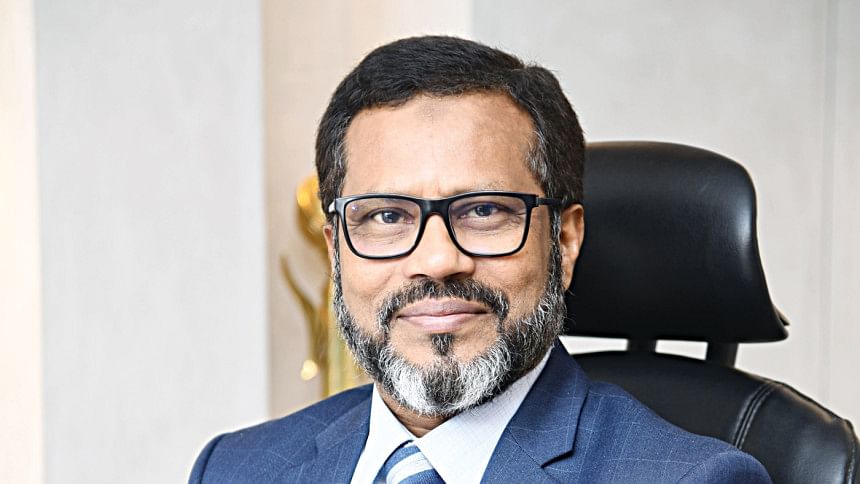QR payments, EMI options, and enhanced security are driving progress

Mohammad Mamdudur Rashid
Managing Director & CEO
United Commercial Bank
The Daily Star: How is Bangladesh progressing in its transition to a cashless economy?
Mohammad Mamdudur Rashid (MMR): Bangladesh's shift to a cashless economy is driven by digital banking, mobile financial services (MFS), and e-commerce growth. MFS providers like bKash, Nagad, Rocket, and Upay process daily transactions exceeding BDT 400 billion. QR payments are expanding among small businesses, while debit and credit card usage surpasses 35 million and 2.4 million, respectively. Increased POS adoption and e-payment gateways, along with rising online shopping and OTT platform subscriptions, further accelerate digital transactions.
TDS: What innovative steps has your bank taken to accelerate the shift toward a cashless economy, and how have they impacted customers?
MMR: United Commercial Bank (UCB) has been at the forefront of driving Bangladesh's cashless transformation by introducing customer-centric solutions and addressing key challenges:
• To alleviate concerns about transaction fees, UCB has rolled out cashback offers, discounts, and free transaction benefits for certain merchant and POS transactions.
• EMI (Equated Monthly Instalment) options allow customers to make interest-free purchases, encouraging cashless spending.
• Recognising that not all businesses have POS or digital payment facilities, we introduced QR code payment, enabling small and medium businesses to accept digital payments effortlessly.
• The bank has also expanded its UCB Merchant Accounts to strengthen POS and digital payment infrastructure.
To combat fraud and enhance security, UCB has implemented:
• EMV chip card technology to prevent card cloning.
• Two-factor authentication and OTP verification for secure online transactions.
• A 24/7 fraud monitoring system to detect and prevent suspicious activities in real time.
Additionally, UCB has launched customer awareness programs and training sessions to educate users about digital transaction security. Through the Unet, customers can set transaction limits, block/unblock cards, and manage security settings for enhanced control.
TDS: What policy changes or government initiatives do you believe are crucial for making digital transactions more secure, inclusive, and widely adopted?
MMR: UCB emphasises the need for collaborative efforts between the government, Bangladesh Bank, and private sector stakeholders to create a more secure, inclusive, and widely adopted cashless ecosystem. Key recommendations include:
• Reducing transaction fees for digital payments to encourage broader adoption.
• Expanding digital payment infrastructure, such as POS systems and QR payment solutions, through public-private partnerships.
• Offering tax incentives or subsidies to small businesses that adopt cashless transactions.
• Providing special benefits for businesses that embrace digital banking and cashless payments to stimulate economic growth.
• Establishing a fraud data-sharing platform among banks to quickly identify and mitigate fraudulent activities.
• Launching nationwide awareness campaigns to educate customers about the security and benefits of digital transactions.
Bangladesh is advancing toward a cashless economy. Yet, challenges like high fees, cybersecurity risks, and rural digital literacy gaps remain. UCB's innovations—QR payments, EMI options, and enhanced security—are driving progress.

 For all latest news, follow The Daily Star's Google News channel.
For all latest news, follow The Daily Star's Google News channel. 



Comments